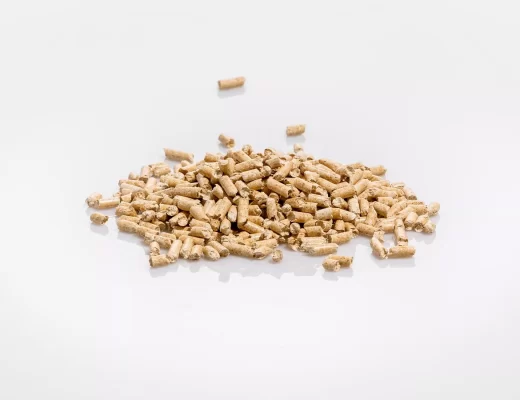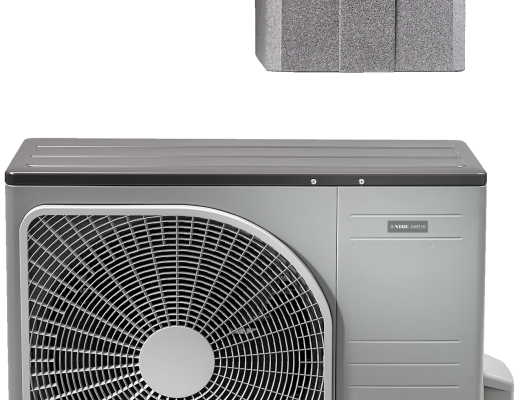Briquettes have become increasingly popular in recent years as a sustainable and efficient heat source. While they were once overshadowed by traditional firewood, the puitbriketi müük has significantly risen, thanks to their versatility and numerous advantages. In this article, we will explore the various heating systems in which briquettes can be used and why they have become a preferred choice for many homeowners.
1. The Basics of Briquettes
Before we delve into their versatility, let’s understand what briquettes are. Briquettes are compressed blocks of biomass materials, such as sawdust, wood chips, or agricultural residues. They are known for their high energy density and consistent burning characteristics, making them an excellent choice for heating.
2. Wood Stoves
Wood stoves have long been a popular choice for heating homes, and wood briquettes are a perfect match for these heating systems. Briquettes fit snugly into wood stoves, providing a long-lasting and steady heat source. Their compact size and uniform shape make them easy to handle and store.
3. Pellet Stoves
Pellet stoves are another efficient heating system, and while they typically use wood pellets, some models can also burn wood briquettes. This flexibility allows homeowners to choose between different biomass fuels, depending on availability and personal preference.

4. Fireplaces
Traditional fireplaces may not be the most efficient heating option, but they are popular for their aesthetic appeal. By using wood briquettes instead of logs, you can enhance the efficiency of your fireplace while still enjoying the crackling ambiance of a wood-burning fire.
5. Outdoor Heating
Briquettes are not limited to indoor heating systems. They are also a convenient and eco-friendly choice for outdoor heating, such as fire pits, chimineas, and barbecue grills. Their consistent burn and minimal ash production make cleanup a breeze.
6. Industrial Applications
Beyond residential use, wood briquettes find their place in various industrial applications. They are often used in biomass boilers to generate heat for factories, greenhouses, and large-scale operations. The sale of wood briquettes for industrial use is on the rise due to their energy efficiency and reduced environmental impact.
7. Environmental Benefits
One of the key reasons for the increasing sale of wood briquettes is their eco-friendly nature. They are typically made from renewable biomass sources, reducing the carbon footprint associated with heating. Additionally, the controlled combustion of briquettes produces fewer emissions compared to traditional firewood.
8. Convenience and Cost-Effectiveness
Lastly, briquettes offer convenience and cost-effectiveness. They are easy to store, handle, and transport. Their uniform size and shape make it easier to gauge how much fuel you need, reducing waste. While initial costs may be slightly higher than firewood, the longer burn time and higher energy output often make them a more cost-effective choice in the long run.
In conclusion, the versatility of briquettes in various heating systems cannot be overstated. Whether you have a wood stove, pellet stove, fireplace, or need industrial-grade heating, wood briquettes ar I apologize for the abrupt ending. Let’s continue exploring the benefits of using wood briquettes in various heating systems.
9. Renewable Resource
One of the significant advantages of using wood briquettes is that they are made from renewable resources. Unlike fossil fuels, which deplete finite reserves, biomass materials used for briquette production can be replenished through sustainable forestry and agricultural practices. This makes wood briquettes a more environmentally responsible choice for heating.
10. Reduced Emissions
Burning wood briquettes results in lower emissions compared to burning untreated firewood. The manufacturing process of briquettes often involves drying the raw materials, which reduces moisture content. As a result, briquettes burn more efficiently and release fewer pollutants into the atmosphere, contributing to improved air quality.

11. Energy Independence
Many homeowners and businesses are seeking energy independence by moving away from fossil fuels. Wood briquettes align with this goal by offering a locally sourced and renewable alternative. By using briquettes, you reduce dependence on non-renewable energy sources and contribute to a more sustainable future.
12. Consistent Heat Output
One of the notable features of wood briquettes is their consistent heat output. Unlike firewood, which can vary in moisture content and quality, briquettes are manufactured to exact specifications. This uniformity ensures a reliable and steady source of heat, making it easier to maintain comfortable indoor temperatures.
13. Longer Burn Times
Wood briquettes typically have longer burn times compared to traditional firewood. This means less frequent refueling and maintenance of your heating system, which can be especially convenient during cold winter nights when you want to keep your home warm without constantly tending to the fire.
14. Reduced Creosote Buildup
Using wood briquettes can help reduce the buildup of creosote in your chimney or flue. Creosote is a highly flammable substance that can accumulate when burning wood, posing a fire hazard. Briquettes, with their cleaner combustion, produce less creosote, improving the safety of your heating system.
In conclusion, wood briquettes have proven themselves to be a versatile and sustainable choice for various heating systems. From residential heating solutions like wood stoves and fireplaces to industrial applications and outdoor heating, briquettes offer consistent heat output, reduced emissions, a 15. Waste Reduction
Wood briquettes also play a crucial role in reducing waste. The production process often utilizes sawdust, wood shavings, and agricultural residues that might otherwise be discarded or left to decompose. By turning these materials into briquettes, we not only create an efficient heating source but also minimize waste and its associated environmental impacts.
16. Local Economic Benefits
The sale of wood briquettes can have positive effects on local economies. Many briquette manufacturers source their raw materials locally, supporting forestry and agricultural communities. Furthermore, the growing demand for briquettes has led to the creation of jobs in production, distribution, and sales, contributing to economic growth in various regions.
17. Carbon Neutrality
When using wood briquettes, you’re essentially cycling carbon that was recently absorbed by the trees and plants from the atmosphere. This means that the carbon released during combustion is balanced by the carbon absorbed during the growth of the biomass feedstock. As a result, wood briquettes can be considered carbon-neutral, making them an attractive option for those concerned about their carbon footprint.
18. Versatility Beyond Heating
Apart from their role in heating, wood briquettes have found applications in other areas. Some power plants use them as a fuel source to generate electricity. Additionally, briquettes are often employed in cooking stoves in areas where clean and efficient cooking options are needed. This versatility further showcases the adaptability of wood briquettes.

In summary, the versatility of wood briquettes extends well beyond their role in various heating systems. They offer a wide range of benefits, from reduced emissions and waste reduction to supporting local economies and providing a renewable energy source. As more individuals and businesses recognize these advantages, the sale of wood briquettes continues to grow, making them an integral part of sustainable heating solutions and environmentally responsible practices.
Whether you’re looking to make your home heating more eco-friendly or seeking a cost-effective and efficient energy source for industrial applications, wood briquettes are a versatile and environmentally conscious choice that is poised to play an even more significant role in the future of heating systems.




